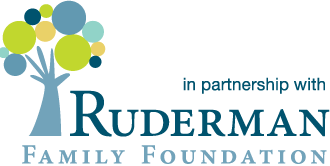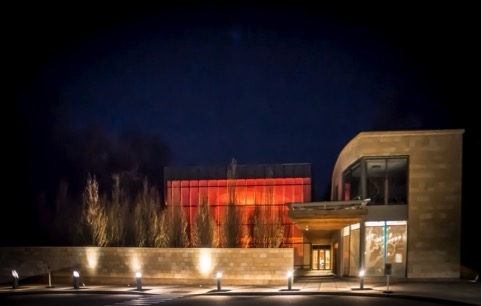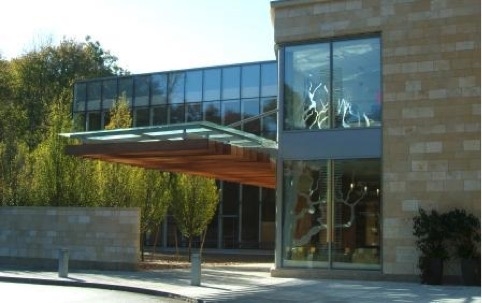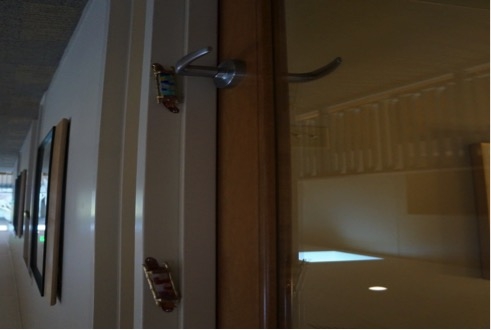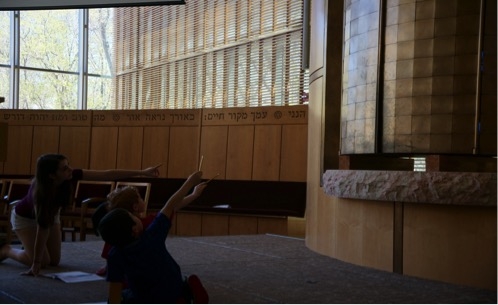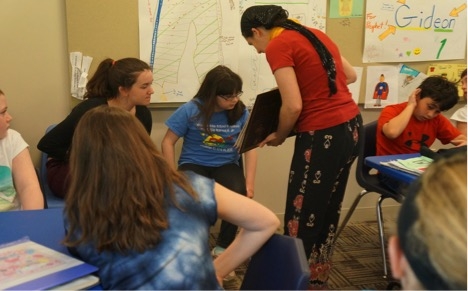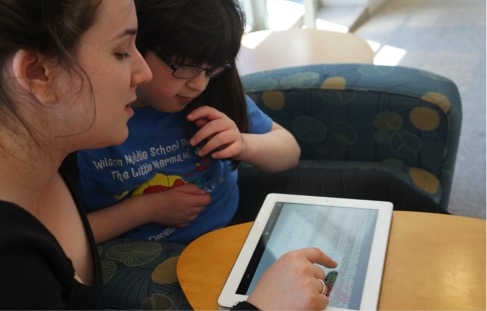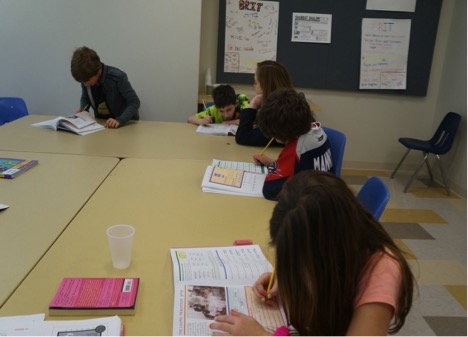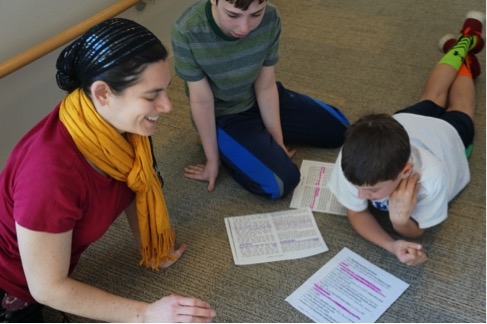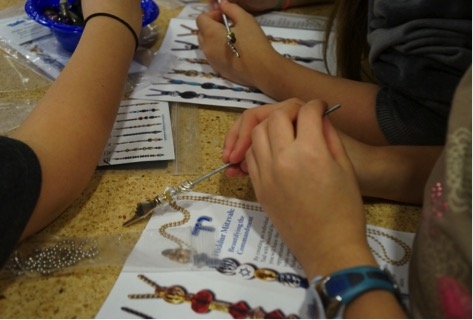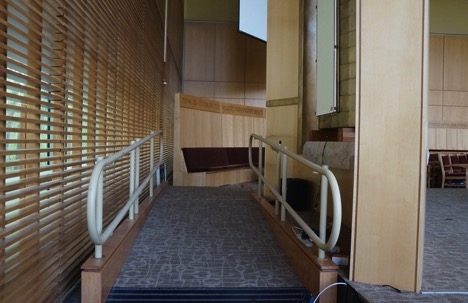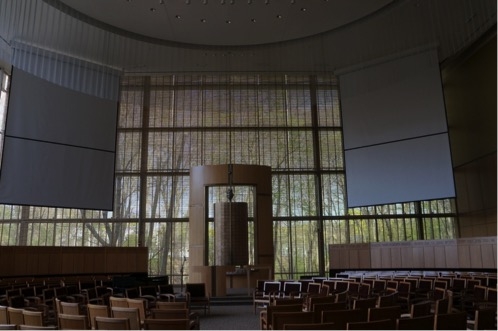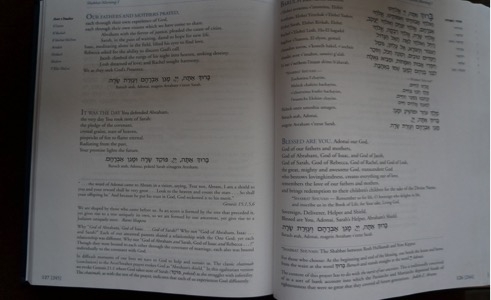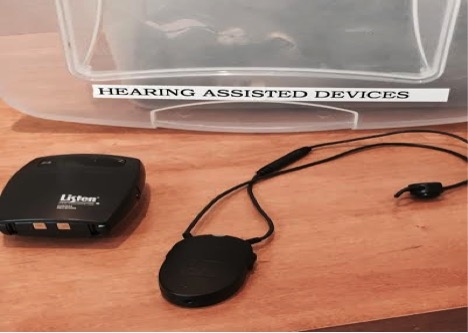Areas of Inclusion: Architectural & Physical Accommodations and Transportation, B’nai Mitzvah, General Inclusion, Mental Health, Religious School, and Youth Group, High School, and College Programming
About the Congregation
10 Bethel Road
Wellesley, MA 02481
Number of Congregants: 1,150 Member Units.
Contact Information
Dr. Judy Avnery, Senior Director, Jewish Living & Learning
781-235-8419 ext. 210
Temple Beth Elohim is a warm and inclusive congregation, dedicated to creating a sacred community engaged in joyful and meaningful Jewish life. We value the uniqueness of each individual and every Jewish journey as we strive to provide many points of entry and opportunities for connection. We are committed to realizing the idea of our synagogue as a sacred home driven by Jewish values. Our vision is of a community like no other in one’s life, where each person is surrounded by blessing and is never alone.
Inclusion Programming
Does this congregation have an inclusion committee?
Yes
Developing Our Program
The program began with children’s learning. Twelve years ago we identified children who needed additional support to become included effectively in our learning community. A committee was convened to hire a part-time person who could help work with parents, students and faculty to address the particular learning needs and learning differences of these students. Over time, learning programs have changed – evolved to create a full inclusion policy with support and funding from our TBE Board. We have increased the role of the original part-time staff member dedicated to this work to create a nearly full-time Coordinator of Learning Support. Our total student population has grown, nearly doubled in size, in the last decade. Along with the general growth, the number of students with identified learning differences has increased as well. Currently 25% of our students have identified learning differences requiring some kind of inclusion support.
As our population was growing, we embarked on a project to build a new building. The building committee worked with members of the congregation to ensure the building would be designed with inclusion as a core value: Bima access, sound in the sanctuary, elevators, wheelchair access to enter and move throughout the building, classrooms with different designs to meet different needs (e.g. with carpeted floors, some with tiled floors, varying sizes, etc.), access to Jewish rituals such as lower Mezuzot, movable chairs in the sanctuary, large print prayer books, Bima ramp, hearing aids. Now that many of our needs are addressed in our physical space, we continue to work on ensuring a culture of inclusion by providing our faculty and staff with regular ongoing professional development on inclusion and by developing new opportunities to engage members in this work. For example, currently we are launching a new congregation-wide initiative on mental health awareness and support. While we have made great strides toward inclusion with this work; we are always thinking about what else we can do and we look forward to ongoing work that will ensure the comfort and inclusion of all who enter our doors.
Number of people involved in the effort: 250
Involving People with Disabilities
People with disabilities are members of our Inclusion Committee. They have been engaged in conversations and all aspects of policy development, program and building design. Our new mental health initiative is congregant-driven and is bringing in more and more members of our congregation though community organizing efforts.
Funding This Effort
Initially we funded the disabilities work in our learning program with a grant from CJP/Gateways, directed gifts from congregants and allocation from our own budget. Over time, we have incorporated program expenses fully into our budget. Last year, we were fortunate to receive an award of $10,000 from the Ruderman Family Foundation to expand our work. We are engaging, with the aid of the Ruderman Family Foundation and Boston’s federation, the Combined Jewish Philanthropies, in a process to determine how best to use those funds to bring even greater strength to our inclusion efforts.
Funding Links
Helpful Agencies & Organizations
➢ Gateways – For ten years, CJP granted funds toward the creation of a position to support special needs. The goal was to support Temple Beth Elohim as they integrated this position into their budget. In addition, Gateways in conjunction with TBE provided professional development for our Madrichim (teen aids). The partnership lasted for two years as TBE integrated this training into their high school program.
➢ Hebrew College – Year long faculty training focusing on Special Education. The goal was to empower our teachers to effectively service each student in an inclusive learning environment.
➢ The Ruderman Family Foundation awarded us a $10,000 Inclusion grant toward strengthening our inclusion work throughout the synagogue.
List of Helpful Agencies & Organizations
Spreading Awareness About Our Work
TBE’s vision can be found on our website. It reflects our inclusion values:
We honor and value the uniqueness of every Jewish journey and try to provide many points of entry and opportunities for connection. Torah (Learning), Avodah (worship) and Gemilut Chasadim (acts of loving kindness) remain our most precious gateways to spiritual sustenance. Our vision is of a community like no other in your life.
We dream of a warm, caring and inclusive community dedicated to nurturing a vibrant spiritual Jewish life. We strive to use our unique gifts and offerings to help develop our synagogue community as a place of discovery and meaning. At TBE you will be part of an environment where you are surrounded by blessing and you are never alone.
TBE is …
• where Torah learning is alive, lived, and embraced by lifelong learners, woven into the very fabric of our culture, informing every action and decision and expressed through our worship, meetings, conversation, and social action
• where we demonstrate our commitment to excellence and innovation, with ongoing self-reflection and evaluation, and through an integration of formal and informal multi-generational and multi-sensory learning
• where you will find a strong partnership of lay and professional leaders, and actively participating members
• where Jewish values are learned and lived in all aspects of synagogue life, evident in the way we speak with and care for one another
• where prayer is diverse and meaningful, rich with music and song, inspiring continual spiritual growth and reaching all generations
• where you will find a community to support you in your times of need, and to celebrate with you in your times of joy
• where you feel a connection to Israel as home and family, especially through our continually deepening relationship with our two sister congregations in Haifa
• where you feel a sense of belonging as you are warmly greeted at a Shabbat service, or remembered by name by fellow congregants and clergy
• where you tell stories and share yourself and are welcomed and embraced
• where you are surrounded by blessing and
• where you are never alone
Temple Beth Elohim welcomes individuals with all abilities to our services and functions. It is important to us that everyone is able to participate fully as a member of our congregation or as a visitor. The building is fully wheelchair accessible and hearing assistance devices are available. If you or a family member has special needs, please let our clergy or the ushers know. We would be happy help!
Our Learning Programs Parent Manual includes the paragraph below. In addition, our on-line registration provides parents with the opportunity to fill in a concern form and share learning plans so we can prepare our teachers and plan for any additional support needed for the class.
"SPECIAL NEEDS
Arlene Lemieux is the Learning Support Coordinator. She joined the faculty to help students succeed academically, socially and behaviorally in their religious school classes. Arlene has adopted a consultative approach, working with other members of the faculty and professional staff to design a positive learning environment for all students. She provides educational and behavioral strategies to teachers, children and families. By providing a nurturing experience, our children can feel comfortable and successful. Arlene looks forward to hearing from parents to form a “Partnership in Holy Work,” which will enable children to bridge the gap between their secular and religious lives."
Our work with the Ruderman Family Foundation is already helping us to make people more aware of our inclusion work. Please watch the video that they created (located in the links below) to show the work of three congregations outside of Boston.
Links About Spreading Awareness
Process & Sharing
History, Materials & Processes that Guided Our Approach
Temple Beth Elohim welcomes individuals with all abilities to our services and functions. It is important to us that everyone is able to participate fully as a member of our congregation or as a visitor. The building is fully wheelchair accessible and hearing assistance devices are available. We believe that every Jewish child deserves an opportunity to experience Jewish education in a fully inclusive community.
Thirteen years ago TBE launched a school special needs program to address the needs of individual students, providing direct service to the classroom teachers. Students are identified through completed concern forms submitted by their family. IEPs, 504s, neuro-psychological reports along with any pertinent medical information are also requested. The Coordinator of Learning Support reviews all of this information and prepares it to share as an individualized curriculum adaptation plan of each student to the classroom teachers. Differentiated accommodations and tools are included. Our teaching model is the implementation of a multi-sensory, center-based approach. Successful learning begins with meeting needs and adapting the curriculum as needed.
Our Learning Programs are supported by 65 Madrichim, (teaching assistants), for whom a year of training is provided. Our TAs service the student population requiring one-to-one classroom aides. Some of the TAs are individually trained to support students with dyslexia through a modified Orton-Gillingham reading approach. They also provide ongoing over-arching classroom support, including taking leadership roles as student mentors or Hebrew reading group leaders.
The faculty prepares lesson plans that are critiqued by the Coordinator of Learning Support. The process of creating a lesson plan includes describing an enduring understanding of the topic taught, a list of mirroring essential questions and a description of methods/differentiated learning processes and of all work centers. A reflective assessment of successes and challenges met are required to complete the plan. Lesson plans are shared with the classroom TA, including describing their role in that day’s lesson.
The Inclusion committee was formed to identify additional areas that require attention in the area of inclusion. For example, we are looking into changing some of the doors inside the building to be accessible.
Evidence of Successful Inclusion Efforts
1. Numbers in learning program: twelve years ago we had ten students with disabilities in our K-7 program out of a total of 425 students in school. Currently, we have 150 students with identified learning differences in our K-7 learning program of 600 total students.
2. We have many new families seeking TBE because of our reputation of our inclusive learning program.
3. Students with learning disabilities remain active participants through our high school program. Havayah, TBE’s teens program, is designed to meet the needs of all learners and you can even find one of our teens with special needs acting as one of our Madrichim.
Testimonial:
This anecdote is about a seventh grade male student who joined the Religious School at TBE Wellesley in kindergarten. He has a diagnosis of ADHD and Generalized Anxiety Disorder. With difficulty regulating his executive functions, including cognitive rigidity, difficulty navigating school situations as well as regulating his affect and behavior, he was put on a 504 Accommodation Plan.
I met this young man when he was entering third grade. The Educational Director and Coordinator of Learning Support met with his family to review his most recent neuro-psychological reports and his 504 Plan. The Coordinator of Learning Support subsequently shared his instructional and physical accommodations with his classroom teacher and teaching assistant. An individual curricular adaptation plan was created describing the modifications that his educators could implement to best support his daily needs.
He is a very bright and articulate boy who often feels misunderstood. He would make inappropriate comments, alienating his peers. He was unable to self-monitor nor reflect or take responsibility for any situation. The process of placing him in the correct learning environment, including the choice of educators and teaching assistants was vital to his success. The Director of Education and Coordinator of Learning Support were intensely involved with his care. His teachers maintained a very close relationship with his supportive parents.
This year he celebrated his Bar Mitzvah. Pairing him with the correct tutor who would understand his academic and emotional needs was critical. He needed someone with a sense of humor and vision. Last week, his family as well as his tutor, thanked us for the supportive experience provided that made this successful journey possible.
Evidence of Changing Attitudes
TBE values itself as a holy community. The commitment to understanding what it means to be holy and how to live in a fully inclusive community begins with our clergy.
The committee touches every facet of life. Our sanctuary and services are designed to meet the needs of all the members of our diverse population. These are the values that guide the work of our lay-led committees.
In the school, each family with a child with special needs is encouraged to share information with the Director and the Special Needs Coordinator so we can individually address their needs. Over the years parents, have become more forthcoming regarding sharing confidential information and their children’s learning plans. Parents view this process as a safe and empowering partnership. We often receive the comment “you know my child better than the public school teacher!
The ongoing faculty professional development and the guidance from the Coordinator of Learning Support have created a team of teachers committed to the success of each individual student. Students feel safe and welcome in our learning environment. There is a culture of open communication among professional staff, lay leaders and our members of all ages that bring an understanding for ongoing modifications of programs or systems as needed.
Future Inclusion Efforts
We recognize that TBE is a special place. We are fortunate to be in a building that was constructed only four years ago and was designed to meet the needs of all congregants as described above. Our learning programs meet the needs of students identified with learning, social, emotional, mental health and physical differences.
We will continue to provide ongoing training for our faculty and members of our community to help us continue to recognize how we can better prepare for and assist people with differences to feel welcome, included and engaged at TBE. One example is that we hope to commission an edition of our siddur, Mishkan Tfilah, in Braille to share with service participants who have poor eyesight, or who have lost their vision.
We are regularly assessing and addressing physical building issues that raise challenges for our community. We recognize that the hearing enhancement system in our sanctuary does not work for people who have hearing aids. We can better serve those with hearing aids by installing an amplified power neck loop accessory and also providing the alternative of a wireless listening station with headphones.
By ensuring we have a staff that includes specialized B’nai Mitzvah tutors we will be able to meet the needs of our students with language-based learning disabilities, as well as those students with social and emotional challenges. Providing tablets in classrooms can assist students who have difficulty writing.
We will continue to educate and train faculty members by having them attend relevant conferences (such as the local conference focusing on special education in Jewish learning settings, GISHA). We will also continue with internal professional development sessions that deepen teachers’ understanding of students’ needs such as inviting guest speakers to present to all TBE faculty, from preschool to high school, to address teaching and learning in a diverse, caring community.
We commit ourselves to ensuring that every member of our congregation is able to learn and experience the joy of Jewish life together in community. By continuing to assess and make improvements to our programs and physical space we will ensure that everyone within our community is welcomed, and has access to experience all aspects of learning and life within our congregation.

